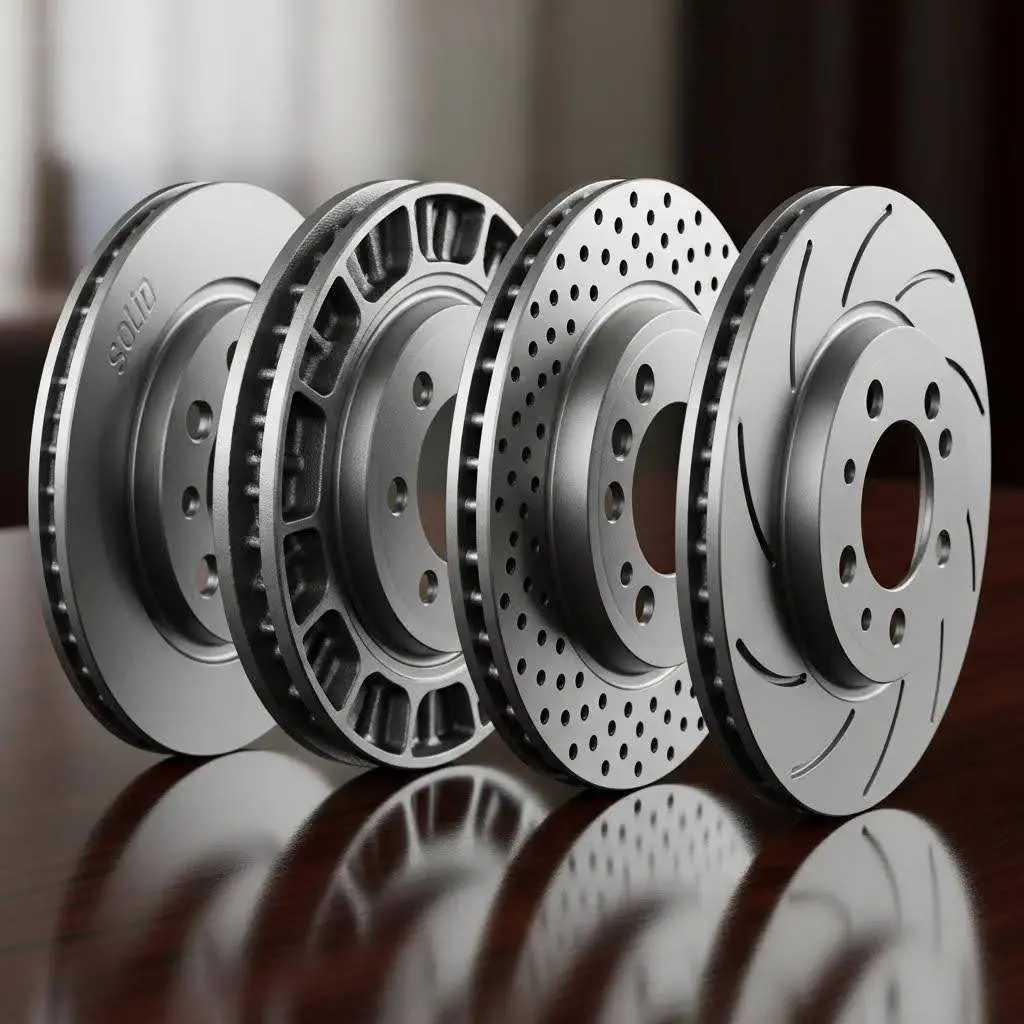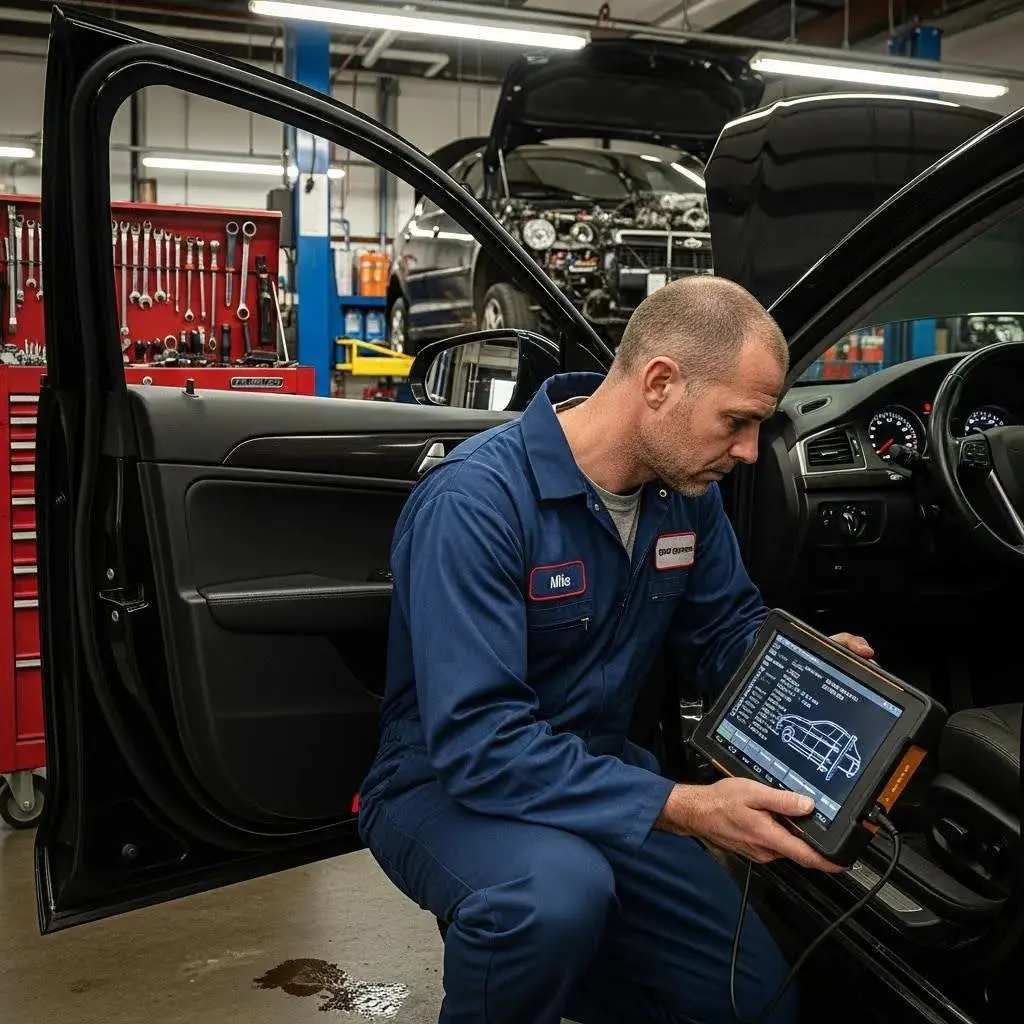To stay safe on the road, you need to know how often to replace car tyres. Generally, tyres should be replaced every 5-6 years, or when the tread depth is less than 2mm.
In this guide, we will show you the signs of worn-out tyres to look out for and when to change them.
Key Takeaways
- For reliable tyre replacements and expert car care, All Vehicle Services in Sittingbourne offers trusted advice, premium tyres, and fast, friendly service.
- Car tyres should be replaced based on tread depth, visible damage, and age; legal recommendations suggest a minimum tread depth of 1.6mm, with safer thresholds being 2mm.
- Regular inspections for signs of damage, uneven wear, and maintaining proper tyre pressure are crucial for ensuring vehicle safety and extending tyre lifespan.
- Factors such as driving habits, road conditions, and maintenance practices significantly influence tyre lifespan; using seasonal tyres can further enhance durability and performance.
When Should I Replace My Car Tyres?
Recognising the right time to replace car tyres is critical for safety and performance. Here are some considerations: Inspecting your tyres regularly for signs of wear, such as tread depth and sidewall damage, can help determine if it’s time for a replacement. Additionally, understanding how to select car tyres that match your driving needs and conditions is essential for optimal performance. Always consult your vehicle’s manual or a tyre specialist to ensure you make the best choice for your safety.
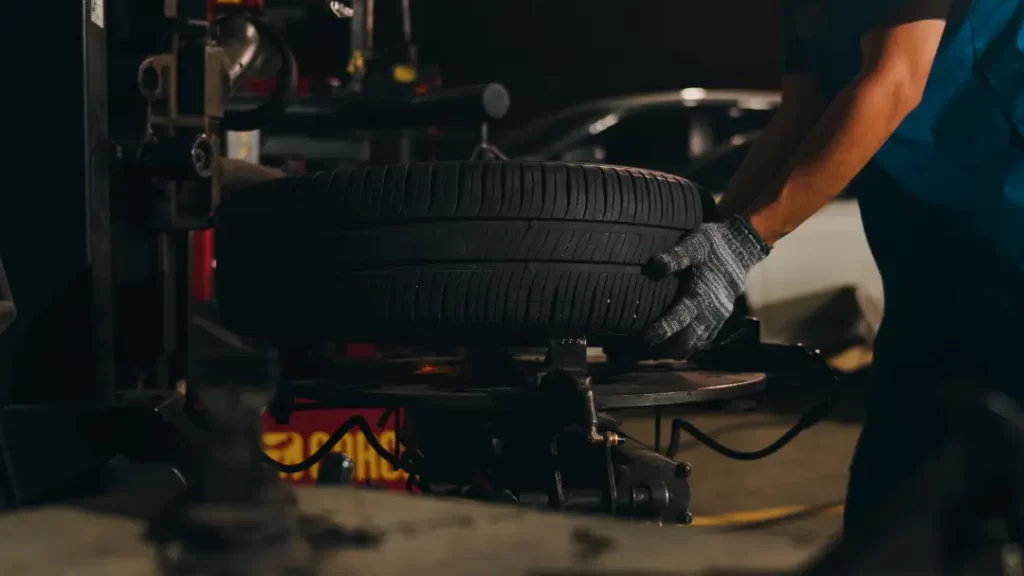
1. Follow the Legal Tread Depth Requirements
In the UK, the minimum legal tread depth for car tyres is 1.6mm. To ensure safety at all times, and ensure braking efficiency and safety, you can check tyre tread depth using a tread depth gauge or a 20p coin.
Having sufficient tread can prevent accidents and ensure compliance with legal limits as you drive in the UK. Most tyres start losing performance when the tread wears unevenly or the tread depth falls below safe limits, especially on rear tyres, which provide crucial traction.
Illegal tyres can lead to an automatic driving ban and even three penalty points if discovered during a roadside inspection.
2. Replace Tyres When You Observe Signs of Tyre Damage
Worn tyres are not just a risk. They severely affect handling, especially at high speeds or in wet conditions where enough tread depth is essential for grip. If you can identify punctures, cracks, and bulges on your old tyres, they are clear indicators that the tyres need replacing.
Cracks in the sidewall suggest deterioration and potential blowout risks while bulges or blisters signal the need for immediate replacement. You should therefore always inspect your tyre’s sidewalls for visible damage like cuts or bulges to prevent failure.
If any of these signs are present, have your tyres inspected by a professional. Ignoring these warnings can lead to blowouts and accidents.
3. Change Your Tyres following their Age Considerations
Tyre age significantly affects safety. The rule of thumb for vehicle owners is to change tyres before they reach the legal minimum to avoid safety risks and penalties. Ideally, you should replace tyres every five years. However, if they remain in good and safe condition, they can still be used for up to 10 years, depending on their condition.
Mandatory replacement is required at ten years. Even if tyres appear in good condition, replacing them after ten years is compulsory as a precaution.
To check tyre age, find the four-digit code on the sidewall indicating the week and year of manufacture. Tyres aged eight should be inspected for ageing and may need replacement soon.
Replacing old tyres prevents hazards and maintains vehicle safety.
How to Check Your Tyres for Wear and Tear
Regular inspections for wear and damage are crucial for tyre health. Key ways to inspect your tyres for wear and tear include:
Using a Tread Depth Gauge
A tread depth gauge offers precise measurements and accurately assesses tyre depth. To measure depth, insert the gauge into the tyre grooves.
This tool helps monitor and maintain safe tread levels by providing precise measurements. If the tread pattern is nearly gone and there’s little tread remaining, the tyre becomes unsafe even if it looks intact. Tyre experts recommend replacing worn tyres long before they become illegal tyres to avoid a very serious accident.
Checking for Uneven Wear
Uneven tyre wear suggests possible wheel alignment issues and the need for tyre replacement. Symptoms include wobbling at speeds above 40 or 50 mph, indicating the need for rebalancing. Rough or poorly maintained roads can accelerate tyre wear.
Regular checks for uneven wear can prevent further damage and extend tyre lifespan, ensuring optimal performance and minimising general wear.
The wear on the tread can vary depending on whether you’re driving with front or rear tyres and how well your tyres are rotated. Checking for sharp objects embedded in the rubber can prevent dangerous punctures and extend tyre life.
Inspecting Tyre Sidewalls
Inspecting tyre sidewalls is vital for safety and performance. Look for cracks, blisters, or other distortions. Early identification can prevent blowouts and enhance vehicle safety.
Many vehicle owners overlook the importance of inspecting their spare tyre and spare wheel during routine checks. Your spare tyre should have more tread than the minimum requirements, as it may be relied upon in emergencies at high speeds.
Factors Influencing Tyre Lifespan
Factors like driving habits, road conditions, and maintenance practices affect tyre lifespan. Generally, tyres last between 20,000 to 40,000 miles, which is many miles or 3 to 6 years. However, with proper care, you can significantly extend tyre lifespan and improve vehicle safety, which is worth noting. Understanding tyre durability and performance factors is essential for maximizing your investment. By considering the materials used in tyre construction and the effects of different weather conditions, drivers can make more informed choices. This knowledge not only enhances driving experience but also contributes to safer road travel.
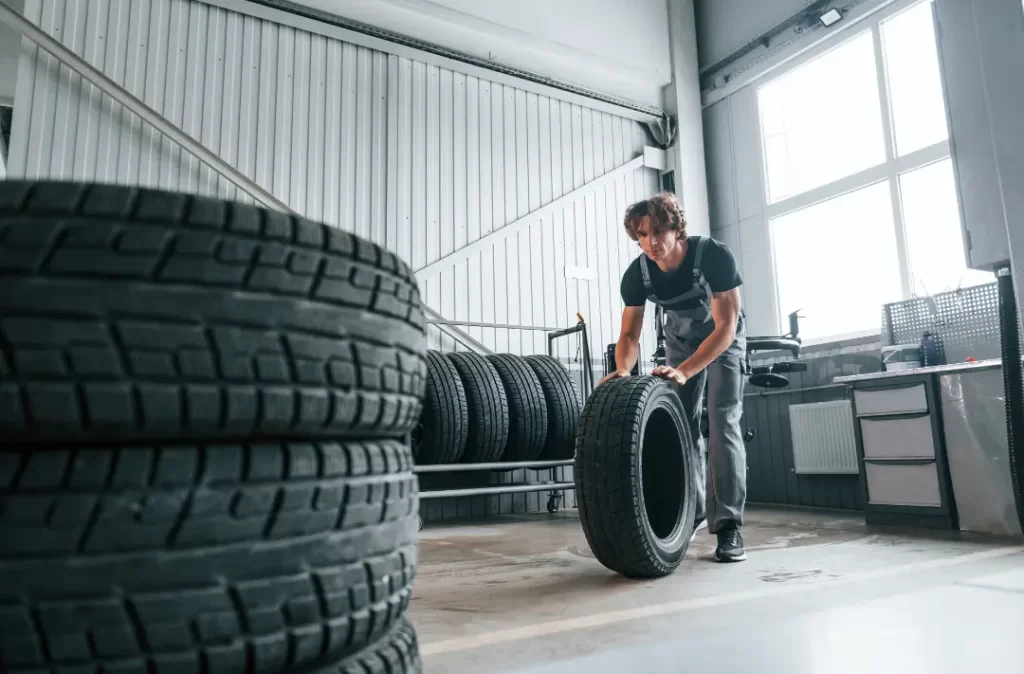
Driving Style
Driving style significantly influences tyre lifespan. If you are someone who drives aggressively, engages in heavy braking, and performs abrupt cornering, know that these reduce tyre life.
A smoother driving style can extend tyre life by minimising wear.
Road Conditions
Driving on uneven surfaces like bumpy roads accelerates tyre wear due to increased friction. The quality and texture of road surfaces also influence tyre performance, affecting grip and braking distance.
Poor road conditions reduces control and increase skidding risk, especially on wet conditions or other rough road conditions, where contact with the road becomes crucial.
Maintenance Practices
Proper tyre maintenance, including correct inflation and alignment, ensures optimal performance and extends tyre lifespan. Rotating tyres every year or 7,500 miles prevents uneven wear.
If unsure about proper tyre rotation, you can reach out to us at All Vehicles Services for professional help.
Seasonal Tyres and Their Impact on Lifespan
Using seasonal tyres can enhance the durability of each tyre set by:
- Switching between winter and all-season tyres
- Ensuring each set is used in optimal conditions
- Extending the lifespan of the tyres
- Maintaining tyre performance
Benefits of Winter Tyres
Winter tyres remain flexible in cold temperatures, providing better traction with the use of advanced rubber compounds.
They improve safety in winter by offering enhanced grip and shorter stopping distances, making them essential for colder climates.
All-Season Tyres
All-season tyres deliver reliable performance across varying weather conditions, offering a balance between summer and winter tyres for year-round safety and comfort.
Where Can I Get My Old Tyres Replaced?
When it’s time to replace your car tyres, choosing a trusted local specialist guarantees safety, reliability, and peace of mind. At All Vehicle Services (AVS) tyres in Sittingbourne, we provide expert tyre replacement and fitting services.
Whether your tyres are worn down, damaged, or simply ageing, our professional team offers honest inspections, premium-quality products, and same-day fitting in most cases to keep you safe and moving.
Why settle for anything less than the best? With over a decade of experience and an extensive range of top-quality replacement tyres always in stock, including premium brands from top tyre manufacturers like Michelin, Bridgestone, Goodyear, and more, AVS is your go-to garage for outstanding tyre solutions.
For convenience or emergencies, you can also take advantage of our flexible mobile tyre fitting service.
Ready for new tyres? Call us now at 01795 422040 or visit our Sittingbourne garage for unbeatable prices, fast fitting, and service you can trust.
The AVS Advantage: More Than Just Tyres
All Vehicle Services is your comprehensive vehicle care centre in Sittingbourne, offering much more than just tyres. Our fully qualified technicians not only fit and balance your new tyres, but can also handle MOTs, wheel alignment, brake checks, air conditioning servicing, and full car maintenance. Knowing how often to service your car is essential for maintaining its performance and longevity. Our technicians can provide personalized recommendations based on your vehicle’s make and model, ensuring you stay on top of all necessary maintenance tasks. Regular service intervals can prevent costly repairs and keep your car running smoothly. In addition to regular servicing, following car maintenance tips for best performance can enhance your driving experience. Simple actions like checking tire pressure, changing oil regularly, and replacing air filters can make a significant difference. Our team at All Vehicle Services is here to guide you through these essential practices, ensuring your vehicle remains in peak condition.
So, no matter your motoring need, we deliver a smooth, safe, and stress-free experience.
Our commitment to excellence has earned us countless 5-star reviews from loyal customers across Sittingbourne and Kent. By combining up-to-date automotive technology, competitive pricing, and friendly service, AVS stands out as the garage that always puts your safety and satisfaction first.
For your professional tyre replacement and total car care, choose All Vehicle Services today.
Importance of Regularly Checking Tyre Pressures
Proper tyre pressure is vital for vehicle safety and enhances fuel efficiency. Approximately 40% of road accidents are linked to under-inflated tyres. Frequent tyre inspections help identify wear and tear.
Regular inspections ensure optimal and safe tyre performance.
How to Check Tyre Pressures
Find the correct tyre pressure in the vehicle manual or on a sticker inside the door. To check, connect a calibrated pressure gauge to the tyre valve stem after removing the cap to ensure you have the right pressure.
Regularly checking tyre pressures maintains optimal performance and safety.
Effects of Incorrectly Inflated Tyres
Over-inflated tyres are prone to overheating, raising the risk of blowouts. They also reduce road contact, compromising traction and increasing braking distances.
Both under-inflation and over-inflation increase the risk of blowouts, posing serious safety issues.
Benefits of Timely Tyre Replacement
Proper tyre pressure enhances vehicle safety and performance. Timely tyre replacements improve braking effectiveness, crucial for avoiding accidents.
Well-maintained tyres contribute to a smoother driving experience by reducing vibrations and improving comfort.
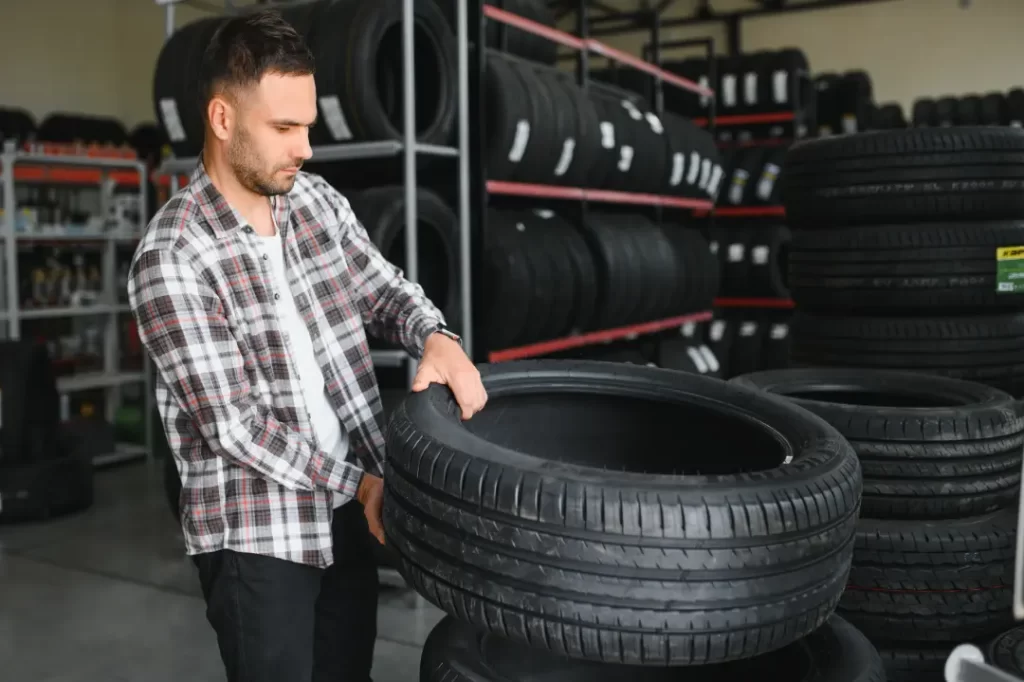
Frequently Asked Questions
How often should I replace my car tyres?
Tyres should be replaced every five years for safety, and must be replaced at ten years regardless of their condition. Regular inspections can help identify wear and damage that may necessitate earlier replacement.
What is the legal minimum tread depth for car tyres?
The legal minimum tread depth for car tyres in the UK is 1.6mm. It is crucial to ensure your tyres meet this requirement for safe driving.
How can I check the tread depth of my tyres?
To check the tread depth of your tyres, you can use a tyre tread depth gauge tool or simply insert a 20p coin into the tread; if the outer band of the coin is visible, it’s time to replace the tyres. Ensuring proper tread depth is essential for safe driving.
What are the signs that my tyres need to be replaced?
If you notice worn tread, visible damage like cracks or bulges, or if your tyres are older than ten years, it is time to consider replacing them. Regularly monitoring these signs can ensure your safety on the road.
How does driving style affect tyre lifespan?
Driving style has a substantial impact on tyre lifespan; aggressive manoeuvres such as heavy braking and sharp cornering can lead to accelerated wear and diminished longevity of the tyres. Consequently, adopting a smoother driving approach can enhance tyre durability. Additionally, regular maintenance, such as ensuring proper tire pressure and rotating the tires, plays a crucial role in extending their lifespan. For those looking to improve their driving habits, considering some maximising tread life tips can make a significant difference in overall tire wear. By being mindful of speed and avoiding sudden stops, drivers can further improve their tire’s durability over time.
Conclusion
Tyre maintenance is crucial for vehicle safety and performance. Regularly checking tread depth, inspecting for damage, and understanding the factors that influence tyre lifespan can ensure your tyres last longer and perform better. Learning puncture repair techniques for beginners can empower you to handle unexpected tyre issues on the road. Mastering these basic skills not only saves you time and money but also boosts your confidence in vehicle maintenance. Being prepared with the right tools and knowledge ensures that you can tackle minor repairs effectively.
Timely tyre replacement, regular pressure checks, and choosing the right tyres for the season are key to maintaining optimal safety and efficiency on the road.
For expert tyre service, same-day fitting, and professional care, trust All Vehicle Services in Sittingbourne. Our experienced team is here to support you with regular inspections, high-quality tyre options, and convenient mobile services when you need them most. Make us your go-to partner for safer, smoother driving all year round.

